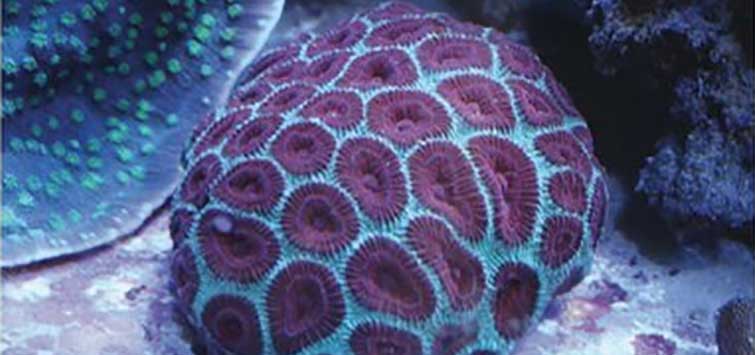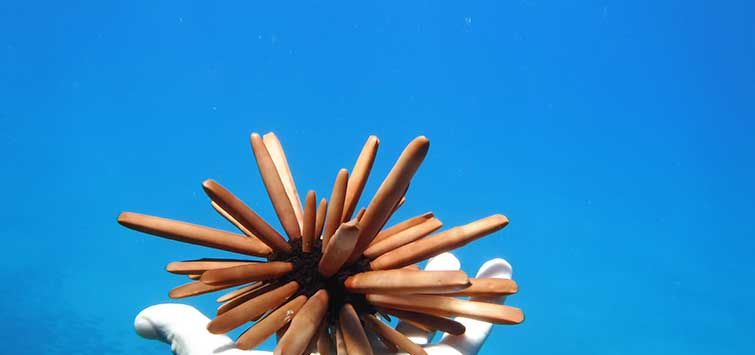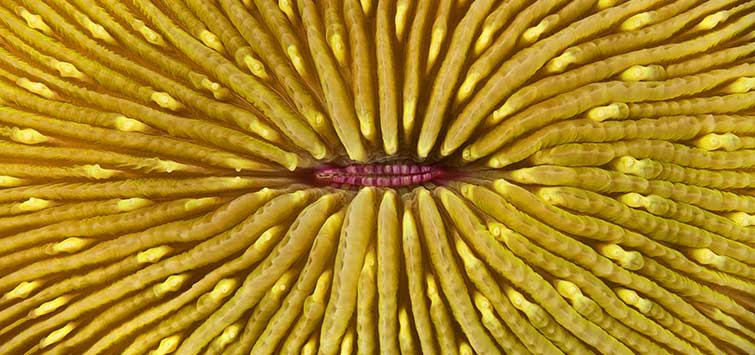Favia pallida
Common Names: Moon coral, brain coral, pineapple coral, crater coral, star coral, closed brain coral, honeycomb coral, worm coral
Phylum: Cnidaria
Class: Anthozoa
Order: Scleractinia
Family: Faviidae
Range: Indo-West Pacific and Red Sea, including western, northern, and eastern coasts of Australia east to Tahiti, and north to southern Japan
Natural Environment: This photosynthetic stony coral is usually found in a wide assortment of reef habitats and depths, yet is sometimes quite dominant in back-reef margins.
Water Requirements: Calcium 380 to 430 ppm, alkalinity 3.5 meq/l, pH 8.1 to 8.2, specific gravity 1.024 to 1.026, NO3 < 15 ppm, Mg approx. 1272 ppm, phosphate < .015 ppm, and a temperature range of 75° to 83°F (24° to 28°C).
Captive Care
This is generally a fairly hardy stony coral, yet if damaged, can suffer from tissue recession and quite possibly brown jelly-like protozoan infestations. Care needs to be taken when placing this coral in the aquarium, as water movement that is too strong may cause tissue recession, which may in turn bring about a protozoan infection. This may also allow an alga such as Ostreobium to infest its barren skeletal material, hastening tissue recession.
Besides nothing-more-than-moderate water movement, lighting is also a husbandry aspect that needs attention, as this species prefers bright light, with metal halides likely a better choice than fluorescents, and a range of 4 to 6 watts per gallon sufficing nicely. If placed high in the aquarium, be sure to secure its position, as damaged tissue from falls frequently leads to loss of this coral.
Care should also be taken as to its position in relation to other corals, as this species can send out long sweeper tentacles during the evening. Keep in mind that growth seems to stagnate in specimens maintained at lower light levels. Nevertheless, if adequate lighting cannot be provided, hand feeding the coral can help encourage growth. Feeding tentacles are usually displayed during evening hours and zooplankton-type products such as enriched adult brine shrimp or cyclops can occasionally be offered.

.png?h=595&iar=0&w=2781&hash=5FD5E69473BCC22199FBFA2FB71B6033)



